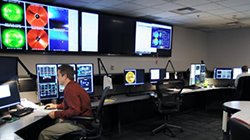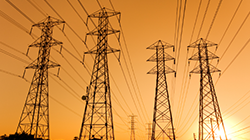
Learn more about...
- Current Conditions and News
- Types of Solar Storms and Phenomenon
- NOAA Space Weather Scales
- Outreach & Education Resources
- NWS Space Weather Social Media Resources
- Space Weather Safety Website
- Science-on-a-Sphere Datasets and Visualizations
- Training
- Videos
- Space Weather Prediction Center Product Subscription Service
- Space Weather FAQs
- Additional Space Weather Prediction Center Resources
What is space weather?
Space Weather refers to variations in the space environment between the sun and Earth (and throughout the solar system) that can affect technologies in space and on Earth. Space weather is primarily driven by solar storm phenomenon that include coronal mass ejections, solar flares, solar particle events and solar wind. These phenomena can occur in various regions on the sun’s surface, but only Earth directed solar storms are potential drivers of space weather events on Earth. An understanding of solar storm phenomena is an important component to developing accurate space weather forecasts (event onset, location, duration, and magnitude).
Why does space weather matter?
Space weather is a global issue. Unlike terrestrial weather events, like a hurricane, space weather has the potential to impact not only the United States, but wider geographic regions. These complex events can have significant economic consequences and have the potential to negatively affect numerous sectors, including communications, satellite and airline operations, manned space flights, navigation and surveying systems, as well as the electric power grid.



